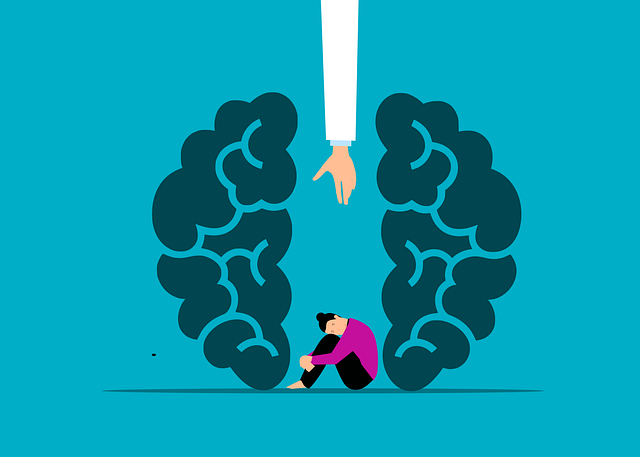Inpatient vs Outpatient Mental Health
Navigating mental health challenges can be overwhelming, but choosing the right type of care is crucial for a successful recovery journey. The primary decision often comes down to selecting between inpatient and outpatient treatment for mental health. Understanding the key differences between these options can help individuals make informed decisions that best suit their needs. This article dives deep into the unique aspects of both inpatient and outpatient care to provide clarity for those seeking the best mental health treatment.
Nashville Mental Health
What is Mental Health Treatment?
Mental health treatment encompasses a variety of therapies, interventions, and programs designed to help individuals manage and overcome mental health disorders. These treatments can be administered in different settings, including both inpatient and outpatient facilities, and are tailored to meet the unique needs of each person. Mental health treatment options often include individual and group therapy, medication management, and behavioral therapies. By addressing the specific challenges faced by individuals, mental health treatment aims to improve overall well-being and quality of life.
What Is Inpatient Mental Health Treatment?
Inpatient mental health care, also known as an inpatient treatment program, provides a highly structured environment designed for individuals facing severe mental health disorders or safety concerns. Patients stay overnight at an inpatient facility, receiving round-the-clock supervision and comprehensive treatment. This level of care ensures immediate access to medical attention and mental health professionals.

Key Features of Inpatient Treatment
24/7 Supervision: Ensures safety and constant monitoring for individuals at risk of harm to themselves or others.
Structured Environment: A highly structured schedule that includes therapy sessions, activities, and rest times to support recovery.
Intensive Treatment: Involves individual therapy, group therapy, medication management, and skill-building sessions.
Safe Housing: Provides a monitored environment free from external triggers or stressors that could hinder progress.
Inpatient mental health care, often referred to as an inpatient program, is recommended for individuals who need immediate intervention, struggle with severe symptoms, or are unable to manage their mental health disorders in a less controlled setting. This type of care provides a supportive environment for individuals to focus solely on their recovery.
Who Benefits Most from Inpatient Care?
Inpatient care is ideal for those dealing with crises such as severe depression, suicidal thoughts, or acute episodes of anxiety or psychosis. It is also suitable for patients requiring detoxification from substance use or those in need of constant supervision due to safety concerns.
What Is Outpatient Mental Health Treatment?
Outpatient mental health care, also known as an outpatient treatment program, allows individuals to receive treatment while continuing with their daily routines. Unlike inpatient care, outpatient programs do not require patients to stay overnight at a facility. This option is suitable for those with manageable mental health conditions who seek flexibility in their treatment plans.
Key Features of Outpatient Treatment
Flexibility: Therapy and group sessions are scheduled on a set basis, allowing patients to maintain other responsibilities such as work or school.
Cost-Effective: Typically less expensive than inpatient programs, making it more accessible for many individuals.
Supportive Care: Offers a range of services including outpatient mental health care, intensive outpatient programs (IOPs), and partial hospitalization programs (PHPs).
Continuity of Daily Life: Patients can maintain their normal routines while attending treatment, which can aid in the application of learned coping strategies.
Outpatient treatment programs can also serve as a step-down option for individuals transitioning from inpatient care, helping them reintegrate into their daily lives while maintaining structured support.
Types of Outpatient Programs
Standard Outpatient Therapy: Includes regular one-on-one or group therapy sessions.
Intensive Outpatient Programs (IOPs): Offer more frequent therapy and group sessions for individuals needing higher levels of support.
Partial Hospitalization Programs (PHPs): Provide intensive care during the day while allowing patients to return home at night.
Partial Hospitalization Program (PHP)
A Partial Hospitalization Program (PHP) is a type of outpatient mental health treatment that offers intensive therapy and support for individuals needing more structured care than traditional outpatient programs provide. PHPs typically involve a combination of individual and group therapy sessions, along with medication management. These programs are designed to help individuals manage their symptoms and improve daily functioning. PHPs are often used as a step-down from inpatient care or as a step-up from standard outpatient care, providing a middle ground that ensures continued support and progress.
Nashville Mental Health
Inpatient vs Outpatient Mental Health: Key Differences
Understanding the differences between inpatient and outpatient mental health care is essential to making the right choice. Inpatient care is provided in a mental health facility, which offers structured support and therapeutic interventions for individuals experiencing severe mental health symptoms. The main difference lies in the level of supervision and intensity of treatment:

Feature | Inpatient Care | Outpatient Care |
|---|---|---|
Level of Supervision | Round-the-clock supervision | Limited supervision |
Setting | Residential facility | At-home with scheduled visits |
Flexibility | Less flexibility, requires staying overnight | Flexible, fits around daily life |
Cost | Higher cost due to intensive services | Lower cost |
Treatment Intensity | Highly structured, intensive treatment | Moderate to low intensity |
Additional Considerations
Treatment Duration: Inpatient programs typically last from a few weeks to several months, while outpatient programs can extend for much longer, depending on individual needs.
Social Support: Outpatient care allows patients to maintain family and social connections, which can be beneficial during recovery.
Transition Between Levels of Care: Many individuals begin with inpatient treatment and transition to outpatient care as they progress.
Benefits of Inpatient Mental Health Care
Immediate Access to Medical Attention: Ideal for individuals with severe mental health conditions or those in crisis.
Structured Environment: Encourages focus on recovery without external distractions.
Comprehensive Care: Includes various forms of therapy, medication management, and skill-building activities.
Safety: Provides safe housing and round-the-clock supervision for individuals at risk.
Community Support: Offers opportunities to connect with others facing similar challenges in a supportive setting.
Benefits of Outpatient Mental Health Care
Flexibility: Fits around work, school, or family responsibilities, making it easier for patients to access care.
Cost-Effective: An affordable option for mental health treatment that doesn’t compromise quality.
Accessibility: Suitable for individuals with mild to moderate mental health conditions who do not require constant supervision.
Step-Down Care: Serves as a transitional option for individuals moving from inpatient treatment back to their daily routines.
Customizable Plans: Allows for individualized treatment plans tailored to specific needs and schedules.

Potential Downsides of Outpatient Care
While outpatient care can be an effective and convenient option for many, it does come with potential downsides. One of the main drawbacks is that it may not offer the same level of structure and support as inpatient care. This can be challenging for individuals who require more intensive treatment or who have severe mental health conditions. Additionally, outpatient care demands a high level of discipline and motivation from the individual, as they must consistently attend appointments and adhere to their treatment plans. For some, the lack of constant supervision can make it difficult to stay on track with their recovery.
The Importance of Ongoing Care
Ongoing care is a crucial component of mental health treatment, helping individuals maintain their progress and prevent relapse. This can include regular therapy sessions, medication management, and participation in support groups, and can be provided in both inpatient and outpatient settings. Mental health professionals work with individuals to develop personalized treatment plans that address their unique needs and goals. By prioritizing ongoing care, individuals can achieve long-term recovery and enhance their overall mental health and well-being. This continuous support is vital for sustaining the gains made during initial treatment and for fostering resilience against future challenges.
Which Option Is Right for You?
Choosing between inpatient and outpatient mental health care depends on several factors, including the severity of your condition, safety concerns, and personal preferences. Here are some considerations:
Severity of Mental Health Condition: Severe conditions often require inpatient care, while milder cases can benefit from outpatient treatment.
Support System: A strong external support system can make outpatient care feasible.
Daily Commitments: Work, school, or family responsibilities may favor outpatient programs.
Cost: Budget constraints might influence the decision, as outpatient care tends to be less expensive.
Recovery Goals: Individuals with clear recovery goals and motivation may find outpatient programs effective.
How Nashville Mental Health Can Help
At NashvilleMH, we understand that every individual’s mental health journey is unique. Our team of mental health professionals offers both inpatient and outpatient mental health treatment options tailored to your needs. Whether you require intensive inpatient care or the flexibility of outpatient programs, we are here to support you every step of the way.
Take the First Step
If you or a loved one is struggling with mental health challenges, don’t hesitate to seek help. Contact NashvilleMH today to start your journey toward healing and recovery. Our experienced team will work with you to develop a treatment plan that aligns with your needs, goals, and circumstances.
By understanding the key differences between inpatient and outpatient mental health care, individuals can make informed decisions that lead to effective and sustainable recovery. Both options play a vital role in mental health treatment, ensuring that patients receive the care they need to start healing and reclaim their lives.
Nashville Mental Health
FAQ's
The primary difference lies in the level of supervision. Inpatient care provides 24/7 supervision and is suited for severe conditions, while outpatient care offers flexibility for those with manageable mental health needs.
Inpatient treatment is ideal for individuals facing severe mental health disorders, safety concerns, or those who require immediate and intensive intervention in a structured environment.
Yes, many individuals start with inpatient care for stabilization and transition to outpatient programs for ongoing support and reintegration into daily life.
Outpatient options include standard therapy sessions, Intensive Outpatient Programs (IOPs), and Partial Hospitalization Programs (PHPs), each offering varying levels of care and flexibility.





